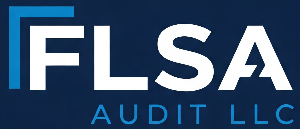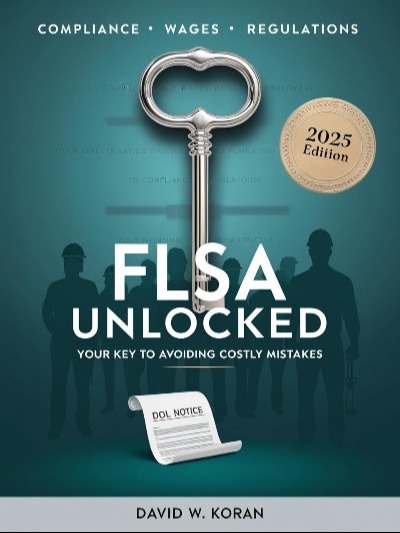Employers’ Responsibility for Employee Personal Data in Cloud-Based Accounting and Payroll Systems
In today’s digital workplace, cloud-based accounting and payroll systems like QuickBooks Online, ADP, and Gusto have become indispensable for managing employee data, including sensitive personal information such as Social Security numbers (SSNs). These platforms streamline payroll, tax reporting, and compliance with laws like the Fair Labor Standards Act (FLSA). However, their convenience comes with a significant responsibility: employers must safeguard this data against breaches, whether from internal threats like former employees, external compromises of the cloud provider, or vulnerabilities introduced by poor security practices within their own teams. Failure to do so can expose employers to legal liability, financial penalties, and reputational damage. This article explores the scope of that responsibility through three key scenarios: unauthorized access by former HR and office employees, breaches at the cloud software provider, and weak passwords used by payroll staff.
The Legal Foundation of Employer Responsibility
Employers are entrusted with employee personal data under a patchwork of U.S. laws. The FLSA requires maintaining accurate payroll records—often including SSNs—for at least two to three years, implying a duty to keep them secure. The IRS and Social Security Administration expect employers to protect SSNs used in tax filings, while state data breach notification laws (e.g., California’s CCPA) mandate prompt action if personal data is exposed. Beyond statutes, general negligence principles hold employers accountable for “reasonable” safeguards. When using cloud-based systems, this duty doesn’t vanish—it extends to how employers manage access, choose vendors, and enforce security practices.
Scenario 1: Former HR and Office Employees Illegally Accessing Data
One insidious threat comes from within: former HR or office employees who retain access to cloud systems after termination. Consider an HR manager who processes payroll in QuickBooks Online. Upon leaving the company, they might still have login credentials if the employer fails to revoke access promptly. If this ex-employee logs in and downloads employee SSNs—perhaps to sell on the dark web or use for identity theft—the employer bears significant responsibility.
Legally, courts have ruled that employers can be negligent for not terminating access post-employment. For example, in Enslin v. Coca-Cola Co. (2017), a company was sued after a former employee stole sensitive data using retained credentials. The lesson? Employers must have robust offboarding processes: immediately disabling accounts, changing shared passwords, and auditing access logs in cloud systems. In practice, this means leveraging features like QuickBooks Online’s user management tools to remove ex-employees and enabling two-factor authentication (2FA) to block unauthorized logins. Failing to act leaves employers liable for damages if employees suffer identity theft or financial loss traceable to the breach.
Scenario 2: Responsibility When the Cloud Software Company is Compromised
What happens when the cloud provider itself is breached? Take the 2024 Intuit breach, discovered in February 2024, where attackers used stolen credentials to access TurboTax accounts, potentially exposing SSNs. While Intuit claimed no systemic breach of QuickBooks Online occurred, the incident raised questions for employers using integrated Intuit services. If a similar compromise hit QuickBooks Online’s servers, exposing employee data, would employers be off the hook?
Not entirely. Employers can’t fully delegate responsibility to cloud vendors. Under legal principles, they must exercise due diligence in selecting and monitoring third-party providers. This includes reviewing the vendor’s security certifications (e.g., ISO 27001, SOC 2), ensuring encryption (like QuickBooks’ 256-bit AES), and verifying contractual protections in the Terms of Service. If the vendor’s negligence causes a breach—say, failing to patch a known vulnerability—employers might share liability if they didn’t vet the provider adequately. However, if the breach stems from an unforeseeable attack (e.g., a zero-day exploit), courts might lean toward the vendor’s responsibility, as in In re Home Depot Data Breach Litigation (2016), where retailer liability was debated after a vendor compromise.
Practically, employers should mitigate risks by backing up data locally (encrypted, of course), monitoring breach notifications from the vendor, and having an incident response plan. If employee SSNs are exposed, employers may still face notification costs and lawsuits, even if the cloud provider’s failure triggered the breach.
Scenario 3: Payroll Staff Using Weak Passwords
A payroll employee using a weak password—“Password123”—creates a glaring vulnerability. If a hacker exploits this via phishing or credential stuffing, gaining access to a cloud system like Gusto and stealing employee SSNs, the employer is squarely in the crosshairs. Why? Because employers are responsible for their staff’s security practices when handling employee data.
Negligence here is clear-cut. Courts and regulators expect businesses to enforce basic cybersecurity hygiene: strong, unique passwords, 2FA, and regular training. The FTC’s Safeguards Rule (under GLBA) and state laws like New York’s SHIELD Act reinforce this, holding employers accountable for preventable breaches. In a 2021 QuickBooks-related phishing incident, attackers targeted desktop users with weak credentials, underscoring the risk. If a payroll employee’s lax password enables a breach, the employer could face lawsuits from affected employees (e.g., for identity theft damages) and state fines for failing to protect personal data.
Mitigation is straightforward: mandate complex passwords, enable 2FA (available in most cloud payroll systems), and audit account activity regularly. QuickBooks Online, for instance, offers an audit log to spot unauthorized access—employers ignoring such tools do so at their peril.
Balancing Act: Shared Responsibility in the Cloud
Employers using cloud-based accounting and payroll systems operate in a shared responsibility model. They control access, train staff, and choose vendors, while cloud providers secure the infrastructure. A breach from a former employee’s retained access or a payroll worker’s weak password falls squarely on the employer’s failure to enforce controls. A vendor compromise might split liability, depending on the cause—but employers still face fallout like notifying employees or defending lawsuits.
Practical Steps for Employers
- Lock Down Access: Deactivate ex-employee accounts immediately and use role-based permissions in cloud systems.
- Vet Vendors: Choose providers with strong security (e.g., encryption, 2FA) and clear liability terms.
- Enforce Security: Require 2FA, strong passwords, and regular training for payroll staff.
- Prepare for Breaches: Monitor accounts, back up data, and have a response plan ready.
Conclusion
Employers hold a vital responsibility to protect employee personal data, such as Social Security numbers, in cloud-based accounting and payroll systems—whether the threat arises from former employees retaining unauthorized access, a breach at the cloud provider, or payroll staff compromising security with weak passwords. The law insists on safeguarding this data no matter where it’s stored, and failing to do so opens the door to legal, financial, and reputational risks. As part of our service is the audit of your FLSA-related data security, ensuring not just compliance with recordkeeping requirements but also robust protection against breaches. These audits scrutinize your systems, pinpoint vulnerabilities, and fortify defenses, providing peace of mind in a world where cloud convenience intersects with relentless threats. Investing in cybersecurity and our tailored FLSA audits is a small price to pay compared to the steep consequences of a data breach.

